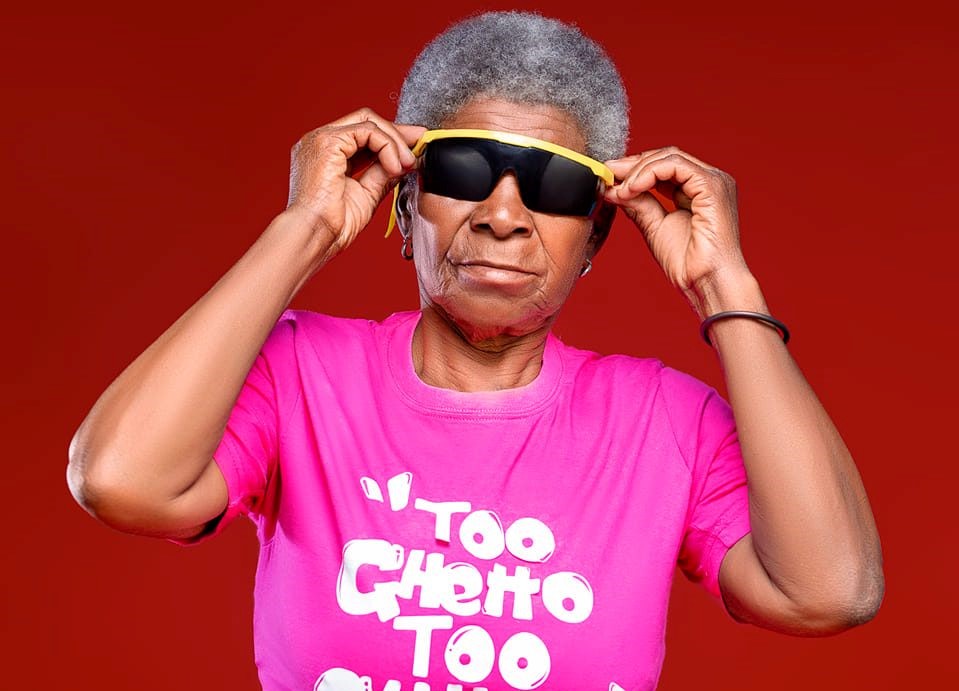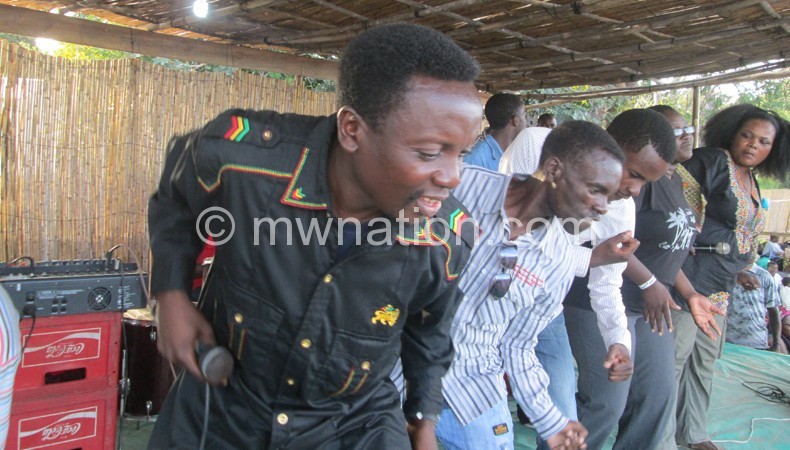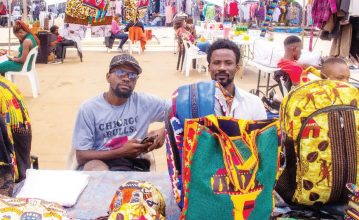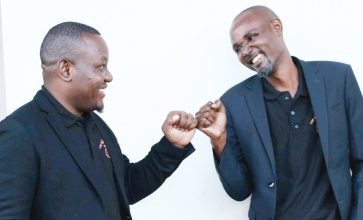Rat in artistic endorsements
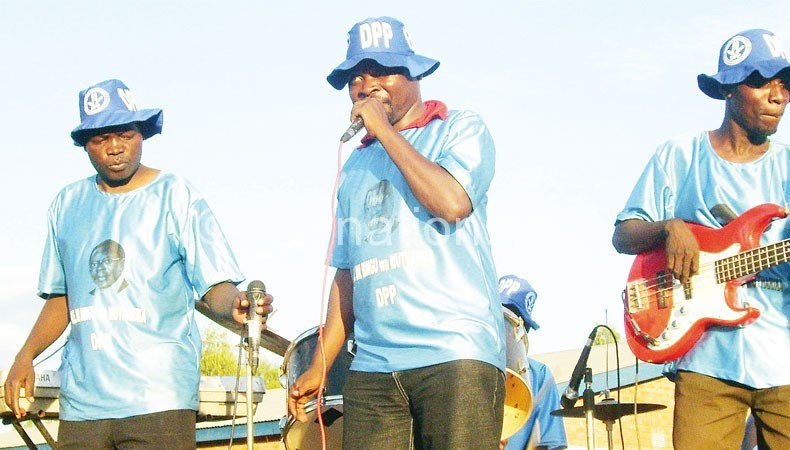
Musician Joseph Nkasa, donned Phungu, is one Malawian musician representing what should not be in artistic political endorsement. He, definitely, has it wrong.
Nkasa shot to fame after several futile album attempts. He is the father of what is deemed the Mayaka style (where you can paste artists like Moses Makawa, Thomas Chibade, Joe Gwaladi and others). His musical success caught the ears of former Malawi leader Bakili Muluzi, who is alleged to have promised Nkasa a car.
While Malawi and the world knows there is nothing wrong with artists endorsing politicians, Nkasa’s chameleon colours portray a state of desperation that has led him to praise politicians with different standings. When Muluzi did not honour his ‘Nkasa car pledge’, the artist was in the studios hitting at Muluzi’s erstwhile blue-eyed boy Bingu wa Mutharika. Everyone remembers his song Nkhope, which went in part: Nkhope ili pa ndalamayo ndi ya ndani? Ya Kayesala mfumu ya anthu.
He further claimed: Nkhope yokhala ngati mtembo womwe unka kumanda, maliro akenso ochita kuswa ndi mwala.
Yet, that changed when Mutharika won the hearts of many, when he proved that his face was not that of a shrewd political surrogate. His views of Mutharika are clear in the 2009 DPP anthem Mose Walero, when he sold Mutharika as the prophetic Moses to lead Malawians out of an Egypt of poverty and misery into an improved Canaan of economic upheaval.
Mose wa lero, Mose wa lero ndi Mutharika, sang our star when the Malawi leader was seeking a much-needed re-election, what with his high ratings in his first term in spite of a very strong opposition in the National Assembly.
When the political humidity was not yet settled that barometers could determine who would carry the day in next Tuesday’s elections, Nkasa was at it again. He composed a song praising People’s Progressive Movement (PPM) of Mark Katsonga Phiri.
But before Malawians turned off their sets after listening to that song, our dear star set on another course, praising in song Joyce Banda, the People’s Party (PP) flag bearer. Decked in orange, the musician has been performing at JB’s rallies across the country. Sole reason: Support Joyce Banda or be doomed.
His message has been so loud and clear, that media reports bring out the repercussions. The musician was stoned in Dowa weeks ago where he was on the JB campaign trail. He denies it.
“I wasn’t stoned. It was some other people, not me,” Nkasa said on Wednesday when questioned on media reports on his stoning.
Asked if he was hospitalised at Mtengo Wanthenga, the artist curtly said: “I went there to see somebody else.”
Further probe on his chameleon colours was futile. He cut the line.
Nkasa is not alone. Several Malawian musicians are committing what the Japanese would call harakiri: suicide. Even so, it could be what the Japanese kamikaze pilots would do during the World War II: fly planes to bomb enemy States and die in the course. More or less what terrorist suicide bombers do in the Middle East. There is a whole lot of Malawian musicians on this suicide mission.
Wendy Harawa has a song praising JB. So, does Charles Nsaku, who we remember for his single praising Bingu wa Mutharika in his death. Joe Gwaladi has not missed the orange bus. Rapper Third Eye has jumped onto that bandwagon as well. Other urban artists, notably Young Kay, Blakjak and Fredokiss have also been in the studio garnering a vote or two for JB. The urban artists were at it last week when PP, through its Orange Partners, organised an urban outing to woo the youthful vote at the College of Medicine.
That as it may be, bands like Black Missionaries and Skeffa Chimoto’s Real Sounds Band have been performing at JB functions. Although they perform songs from their albums, the two bands do not have to their credit songs praising one politician or the other. Their presence at political rallies, however, is reason enough to pull potential voters to beef up political sea of faces politicians are happy with.
One affirmed: “I am only at this rally to see my favourite band perform.”
Speaking on a stormy Friday afternoon when Joyce Banda launched her campaign at Njamba Freedom Park in Blantyre after presenting her nomination papers, Black Missionaries manager Ras Ray Harawa said the campaign period is time for business.
“We get invitations to perform at political rallies. But when we have our usual customers from entertainment joints, we opt to do business with them,” said Harawa.
On the other hand, Lucius Banda has on record Dzuka Malawi, a song endorsing the UDF presidential candidate Atupele Muluzi. One can’t forget, however, that his other song Tidzayenda, came stalking on his feet when the Mutharika he was praising in the run-up to the 2004 elections turned his back on Muluzi, who wrestled Bingu to the high office.
The Tidzayenda ndi Atcheya waliwali/Tidzayenda ndi a Bingu waliwali line in that song took another twist when the campaign period was gone and Bingu became the lame dog to UDF supporters.
Further, artists such as Joseph Tembo find themselves in this political prostitution that is synonymous with Malawi politics. He is, understandably, the producer behind Mayi Chiponda and the then DPP Sisters’ 2009 anthem: A Bingu Senderani. Today, the former DPP parliamentarian who has repudiated his Chikwawa South Constituency for a Chikwawa North post is drumming up support for JB and her PP as they face their first election this coming Tuesday.
Lucius Banda, also known as Soldier, thinks the bubblegum music irking our ears during the campaign period is not music. More so, he says, when the artists have no conviction on what they are singing.
“These are simply jingles. Artists, however, must know that whatever political ideology they are promoting today will backfire on them when Malawians realise the artists sold them a dummy. Artists are role models, they reflect what the general populace thinks,” said Banda, as he was preparing for a final campaign leg before the period is closed tomorrow.
While defining the Nkasa scenario in Dowa as a black dent on smooth snow, Musicians Union of Malawi (MUM) president Chimwemwe Mhango said artists have wallets to fill, but that should not comprise their artistic future.
“Musicians are citizens of the nation who have to choose which political parties to align themselves with, unlike pastors and other professionals. They are working, and if someone says they will give them gravy, they can’t run away, although they don’t necessarily belong to the parties,” said Mhango.
According to the Chiuta Muwemi proponent, the union is aware of the Dowa fracas and their word to musicians is clear: “Don’t be confrontational. For Malawians, creating death for artists seems to be the in thing. But it is not lekker.”
That comes after news on social media indicated Nkasa had died.
Veteran musician Overton Chimombo, whose mellow tunes have touched many hearts, but has never swam dirty and murky political waters, simply said the artists political endorsements are wrong.
“Of course everybody, musicians included, is at liberty to support any politician. But musicians must have the eyes to see they are not being used, misused and abused. It’s not right to sell your soul during the campaign period and be left in the cold when power is won,” said Chimombo.
It may be argued the premise that artists should take a middle of the wall stand is wrong. Artists such as Jay Z took a pro-Obama stance at the American election. Brenda Fassie and Hugh Masekela were on Mandela’s back when the ANC was climbing to power to oust apartheid in South Africa. Even now, we hear of the famed DJ Sbu posting his selfie on Twitter showing he voted ANC at the just ended South African polls.
But, Ben Mankhamba, can be the rare gem of what political stance musicians must take, considering they have fans from both sides of the political divide. His 2002 release, Am I Right? bears testimony to that. Packed in Jamaican reggae, the song bears a deep message in Chichewa, Chiyao and Chitumbuka, Malawi’s three major languages for all to hear. In a nutshell, it is a song that at the end of the day, we are all Malawians and must be united.
Para panyake panangika m’malo mwakukelerana pachiduli, nadi zichite kumanaya na ntchewe kuti uyu ni wa chisopo cha chakuti, uyu yayi ngwachipani cha dada wane, uyu wafumira kwakuti. (When things go wrong, don’t trod to the anthill that even dogs know you belong to that religion, political party or tribe).
Thoughtful food.


